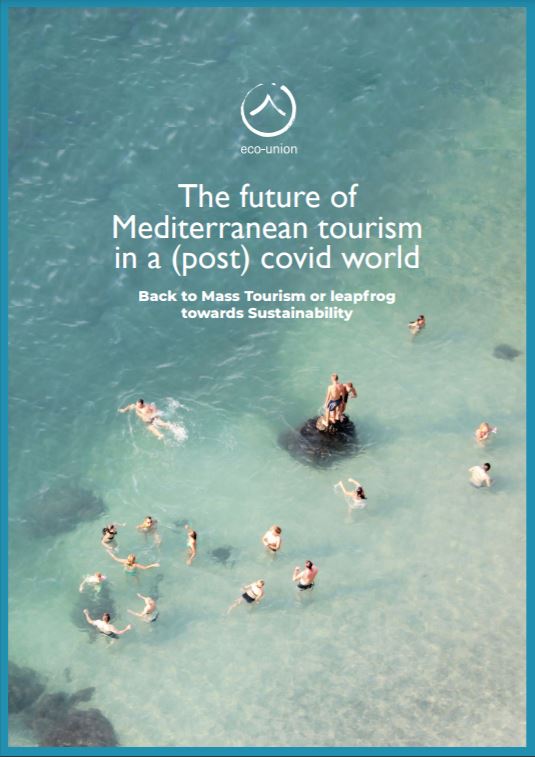The Mediterranean tourism, severely impacted by the travel restrictions due to the COVID-19 pandemic, is now at a crossroad. While tourism has significantly contributed to the economic development of the Mediterranean region, it has also created major negative externalities, such as the degradation of natural ecosystems, the leakages of economic benefits, the dependency in tourism incomes as well as the increase of climate warming.
Even though the pandemic has severely affected the tourism sector and public and international institutions have been forced to take immediate actions to support workers and businesses, it should also be considered as a unique opportunity to rethink the tourist system that we want in the future for this region. In fact, the COVID crisis has also left positive lessons, like the renaissance of domestic tourism and the acceleration of the digitalisation in the industry. All museum and heritage sites have now virtual tours and, even if because of closed-borders, appreciation for local cultural and natural spots is booming.
While waiting for the vaccines to recuperate, in a few years, the 2019 tourism levels, the sector has to work towards a low-impact tourism model. There are indeed some initiatives raising on this direction, from individual companies to international institutions. Ambitious, green and inclusive recovery plans are therefore strongly needed to ensure a positive future to the Mediterranean tourism and contribute to a prosperous region.
